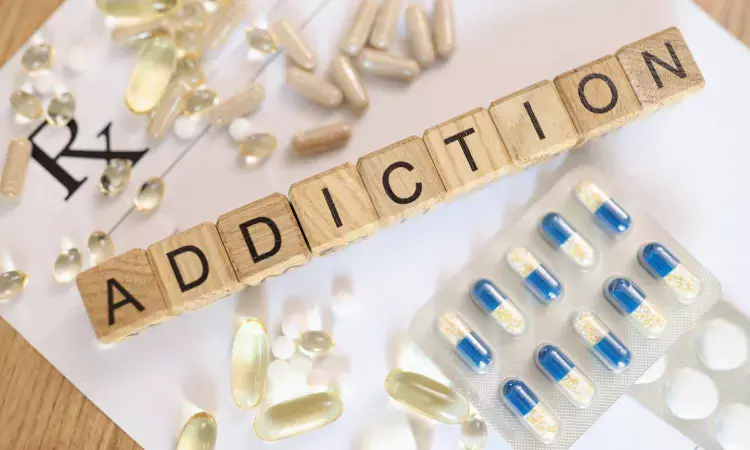- Home
- Medical news & Guidelines
- Anesthesiology
- Cardiology and CTVS
- Critical Care
- Dentistry
- Dermatology
- Diabetes and Endocrinology
- ENT
- Gastroenterology
- Medicine
- Nephrology
- Neurology
- Obstretics-Gynaecology
- Oncology
- Ophthalmology
- Orthopaedics
- Pediatrics-Neonatology
- Psychiatry
- Pulmonology
- Radiology
- Surgery
- Urology
- Laboratory Medicine
- Diet
- Nursing
- Paramedical
- Physiotherapy
- Health news
- Fact Check
- Bone Health Fact Check
- Brain Health Fact Check
- Cancer Related Fact Check
- Child Care Fact Check
- Dental and oral health fact check
- Diabetes and metabolic health fact check
- Diet and Nutrition Fact Check
- Eye and ENT Care Fact Check
- Fitness fact check
- Gut health fact check
- Heart health fact check
- Kidney health fact check
- Medical education fact check
- Men's health fact check
- Respiratory fact check
- Skin and hair care fact check
- Vaccine and Immunization fact check
- Women's health fact check
- AYUSH
- State News
- Andaman and Nicobar Islands
- Andhra Pradesh
- Arunachal Pradesh
- Assam
- Bihar
- Chandigarh
- Chattisgarh
- Dadra and Nagar Haveli
- Daman and Diu
- Delhi
- Goa
- Gujarat
- Haryana
- Himachal Pradesh
- Jammu & Kashmir
- Jharkhand
- Karnataka
- Kerala
- Ladakh
- Lakshadweep
- Madhya Pradesh
- Maharashtra
- Manipur
- Meghalaya
- Mizoram
- Nagaland
- Odisha
- Puducherry
- Punjab
- Rajasthan
- Sikkim
- Tamil Nadu
- Telangana
- Tripura
- Uttar Pradesh
- Uttrakhand
- West Bengal
- Medical Education
- Industry
TN to launch 25 New De-Addiction Centres at Govt Medical College Hospitals

Chennai: In a move to address the growing challenge of substance abuse, the Tamil Nadu Health Department is set to inaugurate 25 new de-addiction centres across government medical college hospitals. The initiative, funded by the Tamil Nadu State Marketing Corporation (Tasmac), is part of a broader effort to address the rising cases of addiction and provide comprehensive care to those in need.
These 25 new de-addiction centres are being established in government medical college hospitals at a total cost of Rs 20 crore. This move was first announced in the Tamil Nadu Assembly on February 19, with the objective of expanding the state’s network of support for individuals struggling with substance abuse.
The infrastructure and necessary works are complete, and the recruitment of staff is nearly finished. These new centres will complement the seven existing de-addiction centres located in government hospitals.
Currently, the training for the new recruits is underway at the Institute of Mental Health (IMH) in Kilpauk. Each centre will be staffed with a counsellor, psychologist, psychiatric social worker, staff nurse, hospital worker, sanitary worker, and security personnel. These staff members have been hired on a contract basis through the District Health Society (DHS) under the National Health Mission-Tamil Nadu.
Also Read: Where are De-addiction Centers: High Court Asks AAP Government
As per the recent media report by TNIE, each centre will have 20 beds. In Chennai, the centres will be set up at the Institute of Mental Health, Rajiv Gandhi Government General Hospital, Government Medical College Hospital in Omandurar Estate, Stanley Medical College Hospital, and Kilpauk Medical College Hospital.
The Patients of these facilities will receive Motivational Enhancement Therapy (MET), designed to encourage individuals to change their addictive behaviours and enhance their self-efficacy. Relapse prevention strategies, including refusal skills and assertiveness training, will also be implemented. With interventions, the deaddiction centres aim to help individuals maintain long-term sobriety and prevent the recurrence of addiction.
Also Read: Ernakulam Medical College to get de-addiction centre at cost of Rs 40 lakh
In addition, they will offer psychosocial interventions to enhance pharmacological treatments' effectiveness by improving medication adherence and ensuring continuity of care. They will also conduct family sessions to educate primary caregivers or family members.
Upon discharge, patients will receive follow-up care in their communities, ensuring continuity of treatment and support. The follow-up process will maintain strict confidentiality, and group therapy sessions may be conducted in the local area to offer ongoing support and reduce the risk of relapse.


